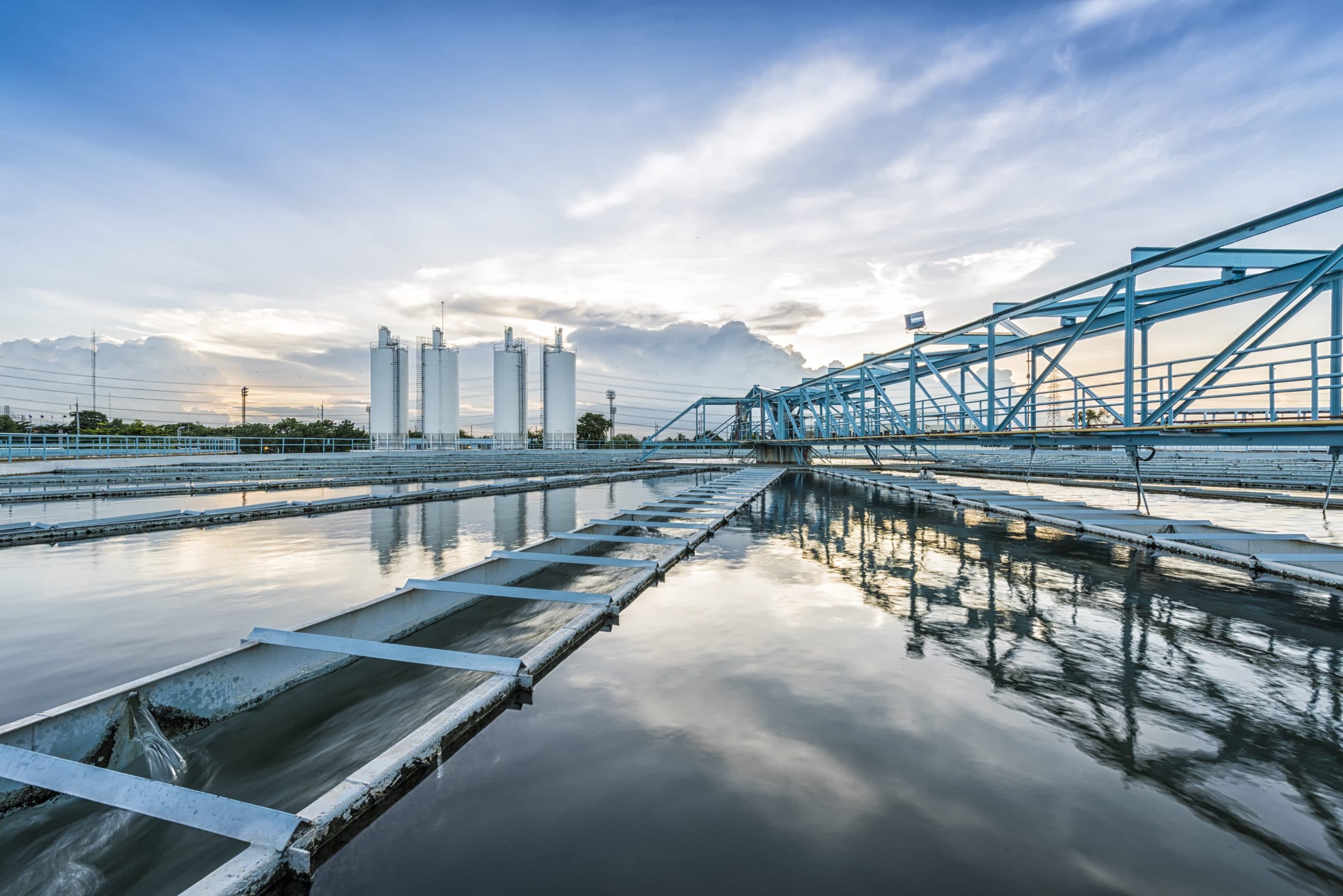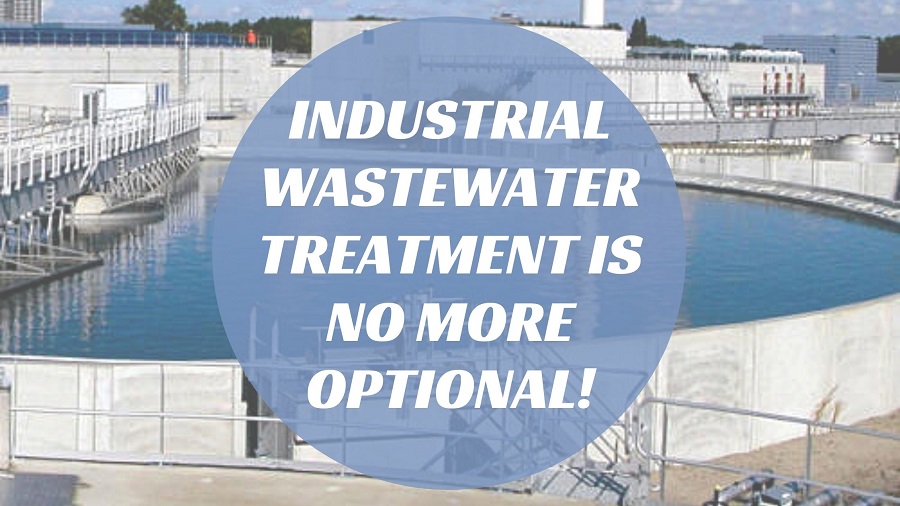The Duty of Industrial Waste Water Treatment in Environmental Management
The effective therapy of commercial wastewater is progressively recognized as a foundation of environmental security, offering to reduce the destructive effects of toxins on aquatic ecological communities. As industries advance and expand, the requirement for robust wastewater administration solutions comes to be critical to make certain compliance with environmental laws and promote lasting techniques.
Significance of Drainage Treatment
The relevance of wastewater therapy can not be overemphasized, as it plays an important duty in protecting public health and the atmosphere (Industrial Waste Water Treatment). Reliable wastewater therapy systems are essential for removing pollutants from commercial discharge, consequently preventing hazardous compounds from going into all-natural water bodies. This procedure decreases the danger of waterborne diseases, which can emerge from untreated wastewater, and safeguards community health and wellness
Additionally, dealt with wastewater can be securely recycled in different applications, such as irrigation and industrial processes, promoting sustainable water management practices. By recycling water, sectors can significantly reduce their freshwater consumption, contributing to resource preservation.
Along with health and wellness advantages, wastewater therapy is important for protecting marine ecosystems. Contaminants in without treatment wastewater can bring about the degradation of water top quality, harming aquatic life and interrupting environmental equilibriums. By dealing with wastewater prior to discharge, sectors aid maintain the integrity of local environments and advertise biodiversity.
Moreover, governing conformity is a vital facet of wastewater monitoring. Complying with established environmental standards not only avoids lawful consequences but also enhances a company's reputation as a responsible corporate citizen. Essentially, effective wastewater therapy is crucial for safeguarding public health, shielding the setting, and advertising lasting industrial methods.

Resources of Industrial Waste Water
Industrial wastewater originates from a selection of sources, each adding to the complexity of therapy processes. Primarily, these resources include making facilities, refineries, and processing plants, which create effluents as a byproduct of their procedures. Industries such as textiles, drugs, food and beverage, and petrochemicals create considerable quantities of wastewater, often stuffed with impurities including hefty steels, organic compounds, and nutrients.
In addition to manufacturing, agricultural tasks add to commercial wastewater via drainage and effluent from animals operations and crop processing. The meat and dairy industries, particularly, are understood for launching high degrees of biochemical oxygen demand (BODY) and microorganisms.
In addition, mining and mineral handling tasks create wastewater having put on hold solids and unsafe chemicals. Power generation plants, specifically those making use of nonrenewable fuel sources, additionally add wastewater with cooling down systems and chemical cleaning processes.
Each of these sources presents one-of-a-kind obstacles regarding the make-up and quantity of wastewater produced, requiring tailored therapy remedies to minimize their ecological effect. Understanding the varied beginnings of industrial wastewater is important for developing reliable administration techniques focused on shielding water sources and promoting sustainable commercial methods.
Treatment Procedures and Technologies
Efficient treatment procedures and innovations are essential for managing commercial wastewater and reducing its environmental influence. Different methods are used to eliminate contaminants, adjust to different wastewater features, and conform with regulatory criteria.
Physical treatment procedures, such as sedimentation and filtering, facilitate the elimination of suspended solids. These techniques are frequently made use of as initial steps to minimize the load on succeeding treatment stages. Chemical therapy, consisting of flocculation, coagulation, and neutralization, addresses dissolved toxins by changing their chemical residential properties, making them simpler to divide from water.
Biological treatment modern technologies, such as activated sludge systems and biofilters, make use of microorganisms to break down raw material and nutrients. These techniques are specifically effective for naturally degradable waste streams, advertising the natural disintegration process. Advanced treatment innovations, such as membrane layer filtration and advanced oxidation processes, offer boosted elimination efficiencies for challenging contaminants, consisting of hefty steels and persistent organic compounds.
Each of these treatment processes can be set up in numerous mixes to develop customized solutions that meet particular commercial demands. The selection of modern technology relies on factors such as the sort of wastewater, desired treatment outcomes, and economic factors to consider, ensuring that industries can operate sustainably while reducing their environmental footprint.
Environmental Benefits
Executing durable wastewater therapy refines not only makes sure compliance with regulative requirements however also yields significant environmental advantages. Reliable therapy of commercial wastewater minimizes the discharge of damaging contaminants into natural water bodies, thereby shielding marine ecosystems. By getting rid of poisonous blog compounds, heavy metals, and virus, these procedures assist maintain biodiversity and advertise much healthier environments.
In addition, treated wastewater can be repurposed for various applications, consisting of irrigation and commercial processes, reducing the demand for fresh water resources. This reuse not just preserves water however also lowers the anxiety on regional water supplies, which is specifically crucial in water-scarce areas.
Furthermore, reliable wastewater treatment reduces the danger of soil and groundwater contamination, making certain the integrity of regional atmospheres. Industrial Waste Water Treatment. By stopping the seepage of unsafe compounds, sectors her explanation add to the overall wellness of surrounding areas and communities, enhancing public depend on and fostering sustainable commercial practices
Regulative Framework and Compliance
A thorough regulatory structure governs the treatment of industrial wastewater, making certain that industries abide by rigorous compliance requirements. Different national and neighborhood regulations, such as the Clean Water Act in the USA, stated limits on the discharge of contaminants right into water bodies. These regulations are developed to secure marine communities and public health and wellness by mandating that sectors implement suitable therapy modern technologies.
Conformity with these regulations typically entails getting permits, conducting routine tracking, and reporting discharge degrees to governing authorities. Failing to abide can cause significant penalties, including fines and operational restrictions, thus incentivizing markets to embrace finest methods in wastewater administration.
Along with governmental policies, several markets also comply with volunteer standards and qualifications, such as ISO 14001, which advertise sustainable ecological administration practices. Additionally, stakeholders are progressively advocating for improved openness and liability in wastewater monitoring, pushing for more stringent enforcement and even more rigorous coverage demands.
Ultimately, a durable regulative framework not only offers to alleviate environmental risks however also fosters a society of sustainability within the industrial sector, urging continual enhancement in wastewater treatment procedures.
Final Thought

The effective therapy of industrial wastewater is increasingly identified as a foundation of environmental defense, serving to mitigate the destructive effects of pollutants on marine communities. Effective wastewater therapy systems are necessary check my reference for eliminating impurities from industrial discharge, thereby protecting against damaging substances from going into natural water bodies.Industrial wastewater originates from a variety of resources, each contributing to the intricacy of therapy procedures. Effective therapy of industrial wastewater reduces the discharge of dangerous pollutants right into natural water bodies, thereby securing aquatic communities.In verdict, industrial wastewater therapy is essential for securing ecological integrity and promoting lasting water management.